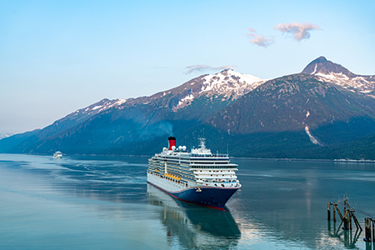Wastewater Discharges From Alaskan Cruises Are Putting Ecosystems In Peril

For years, the coastal regions of Alaska have been popular cruise spots. However, the beautiful landscapes and clear waterways the region is known for have become the epicenter of a serious environmental crisis fueled by cruise ship operations. Data from the Southeast Alaska Conservation Council shows that during the 2023 and 2024 cruise seasons alone, 17 ships reported more than 700 violations of federal wastewater discharge limits in Alaskan waters. This shocking frequency of violations is concerning and threatens the region’s long-term environmental health, as well as that of local communities, fragile marine life, and the tourism industry itself.
The bulk of these infractions are due to the use of open-loop scrubbers. These systems treat engine exhaust by cleaning it with seawater. While effective in reducing air pollution, this process results in contaminated water being discharged directly back into the ocean. This wastewater is highly acidic and loaded with toxic chemicals, including heavy metals (such as vanadium, nickel, copper, and zinc) and leftover fuel oil. It is a major contributor to marine pollution and ocean acidification. Research indicates that exposure to gas scrubber discharge can lead to severe toxic effects on crucial organisms at the bottom of the food web, such as the pelagic copepod.
Get unlimited access to:
Enter your credentials below to log in. Not yet a member of Water Online? Subscribe today.
